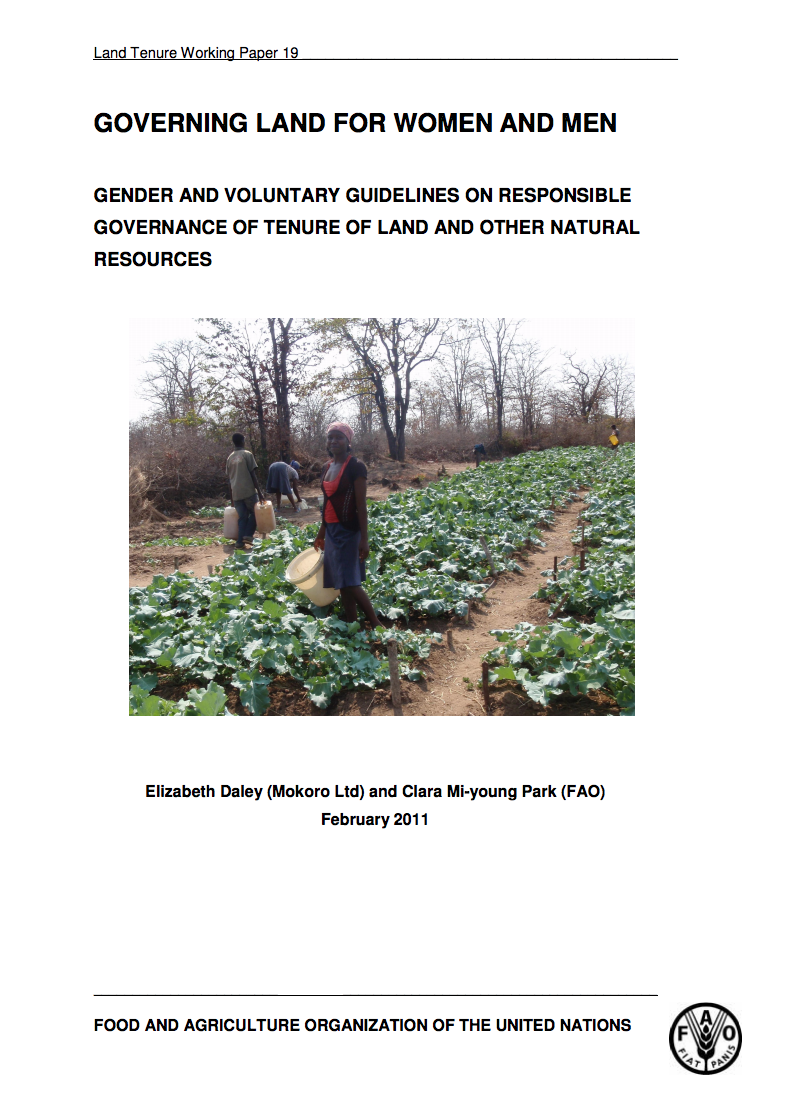The LAND Project is a five year program supported by the United States Agency for International Development (USAID). Its primary goal is strengthening the resilience of Rwandan citizens, communities and institutions and their ability to adapt to land-related economic, environmental and social changes.
Resilience is defined as “the ability to withstand or recover from difficult conditions.” It also comprises the ability of human and ecological systems to recover from shocks or difficult changes, and to transform to a better condition by responding flexibly and creatively to stress factors. In Rwanda, land tends to be one of the primary assets citizens rely on to buffer against difficult conditions and rapid change.
The project’s central objectives are twofold:
1.Increased capacity of local Rwandan institutions to generate high quality, evidence-based research on land-related issues that can be used by the Government, civil society organizations, and Rwandan citizens.
2. Increased understanding of land laws, policies, regulations, and legal judgments on land-related issues by GOR officials, local civil society organizations, research institutes and citizens.
Key outcomes of the project include:
- Holding annual National Land Research Agenda workshops to establish the research priorities of land sector stakeholders that the LAND Project will support. These workshops bring together multiple stakeholders from government, civil society and the research community;
- Supporting research on land-related issues through competitive awards to Rwandan research institutions, universities, and civil society organizations, and providing tailored capacity building assistance to improve research and advocacy capabilities;
- Offering training and other support to legal assistance providers to enhance their capacity to support women and vulnerable populations in understanding and realizing their land rights;
- Training local land authorities on the implementation of the land law and regulations.
- Carrying out research on critical land issues, including gendered land rights in practice, community rights to resources in and around protected areas, and expropriation.
- Managing a land-focused website to improve research, communications, and policy advocacy efforts that are focused on land, and to act as a vehicle for enhancing collaboration between actors working in the land sector;
- Providing organizational development support to civil society organizations supporting women’s land rights.
- Supporting innovative and coordinated communications approaches by civil society and government that enhance the knowledge of Rwandan citizens about research findings and their land rights.
Because the LAND Project is a five year endeavor, we are seeking an institution that has the interest, capacity, skills and resources to eventually take over hosting and maintenance of the website, ensuring it stays up-to-date and relevant to the land sector stakeholder community. If your organization is potentially interested in assuming management of this site, please contact us and tell us why you believe your institution would be an ideal candidate.
Members:
Resources
Displaying 61 - 65 of 149Governing Land for Women and Men: Gender and Voluntary Guidelines on Responsible Governance of Tenure of Land and Other Natural Resources
In setting out principles and internationally agreed standards, the “Voluntary Guidelines on the Responsible Governance of Tenure of Land and Other Natural Resources” intend to provide practical guidance to states, civil society and the private sector on responsible governance of tenure. The Voluntary Guidelines (VG) will constitute a framework for policies, legislation and programs, but will not establish legally binding obligations nor replace existing national or international laws, treaties or agreements (FAO 2009c).
Land Use consolidation A Home grown solution for food security in Rwanda
Rwanda’s economy is largely agrarian. More than 80% of the Rwanda’s projected population of 10.5 million1 depends on farming. The total land area of the country measures 24,700 square kilometers. Although about 79% of the country’s land is classified as agricultural, only 11% of the land represents permanent crop land2. The remaining agricultural lands are covered with forests, marshlands and marginal lands in the hillsides where permanent and routine cultivation of crops are not tenable.
Land Issues in the Rwanda’s Post-Conflict Law Reform.
Rwanda is a small, landlocked country with an area of 26,338 square kilometres, only 52% of which is used or developed. The country has a population of nearly ten million people, with a population growth rate of 3.1% and a high urbanisation rate of 8% a year. The average population density for the country as a whole has been estimated at 330 persons per km in 2002, making it one of the highest density levels in Africa. This stimulates a high demand for housing, especially in urban areas where 25,000 new dwelling units are said to be needed annually.
Socio Economic Impact of Commercial Exploitation of Rwandan Marshes : A Case Study of Sugar Production in Rural Kigali
In 2005 the Government, aiming to encourage more intensive forms of agriculture to supply new markets, passed a land law which brought all marshes and river valleys under State control. In 1997 the State leased 3,100 hectares of land in the Nyacyonga and Nyabarongo marshes outside the capital Kigali to a Ugandan-based enterprise, the Madhvani Group, which also acquired control over the country’s sole sugar mill. Most of the local people who had previously exploited the marshland experienced its takeover by the company as a dispossession.
Land Issues in the Rwanda’s Post-Conflict Law Reform
Rwanda is a small, landlocked country with an area of 26,338 square kilometres, only 52% of which is used or developed. The country has a population of nearly ten million people, with a population growth rate of 3.1% and a high urbanisation rate of 8% a year. The average population density for the country as a whole has been estimated at 330 persons per km in 2002, making it one of the highest density levels in Africa. This stimulates a high demand for housing, especially in urban areas where 25,000 new dwelling units are said to be needed annually.



